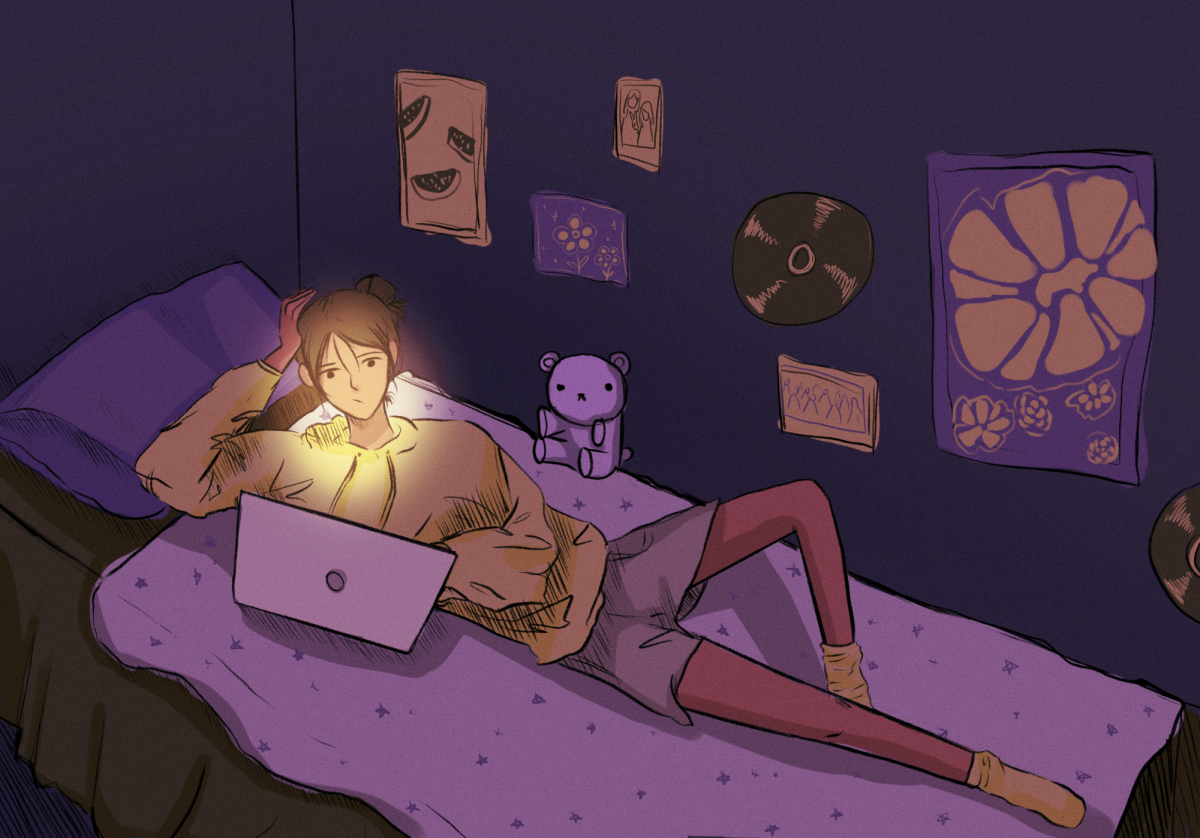Falling into the cycle of bed rotting is easy – perhaps you don’t have any plans and you just want to sit down and scroll mindlessly on TikTok or watch some Netflix for a few minutes. The minutes turn into hours, the hours turn into days. Suddenly, it’s Monday morning and you’ve spent your entire weekend consuming content you don’t even remember. This habit can easily become a repetitive cycle.
While rest and relaxation are absolutely necessary to mental health, it is imperative that we are mindful of these habits in order to avoid adverse effects on social and academic well-being.
Bed rotting has been normalized and celebrated across multiple social media platforms for its ability to allow us to block out all outside sources of stress by reducing our brain’s activity. As busy college students, it’s an excellent way for us to relax and recharge. These benefits are both mental and physical, giving your body necessary rest after an active day.
Biology freshman Micaela Guajardo believes that as long as she is practicing bed rotting in healthy doses, it is beneficial to her mental health and her ability to manage her busy schedule.
“I have alarms and limits for myself, like [letting myself] finish this Netflix episode… and then I’ll get up and do something,” Guajardo said. “When I don’t have much work to do, it feels relaxing to me and good for my mental health to just lay around and do nothing for a while.”
However, the main issues with bed rotting arise when limits are not set and one ‘rots’ for an extended period of time. If not practiced cautiously, bed rotting can disrupt sleep cycles, worsen existing mental health conditions and intensify the feelings of stress that it is intended to cease. These outcomes can affect how we view our environment and change our outlook on social interactions that are necessary for a healthy mind.
Brittany O’Malley, associate director for Prevention and Wellness at the Longhorn Wellness Center, insists that self-care is all about balance. O’Malley says it’s important to acknowledge that every student has a unique approach to their mental health.
“Bed rotting and other types of binge self-care often come more from students who are probably depriving themselves of other forms of stress management or self-care … [and] not prioritizing their wellbeing,” O’Malley said. “For some people, the act of staying in bed and disconnecting from the world a bit can for sure be self-care. [But] for others, that act might be isolating, and that might be detrimental because they [may] need more support and connection from others.”
Although bed rotting has been proven to have positive effects, it is important to utilize it in moderation and recognize the merit of other forms of self-care, like going for a walk or listening to music, which can improve your mental health. We have to approach this practice with caution and always remain in control of our habits regarding rest and relaxation in order for true stress relief to ensue.
Herman is a Plan II and Psychology freshman from Southlake, Texas.















